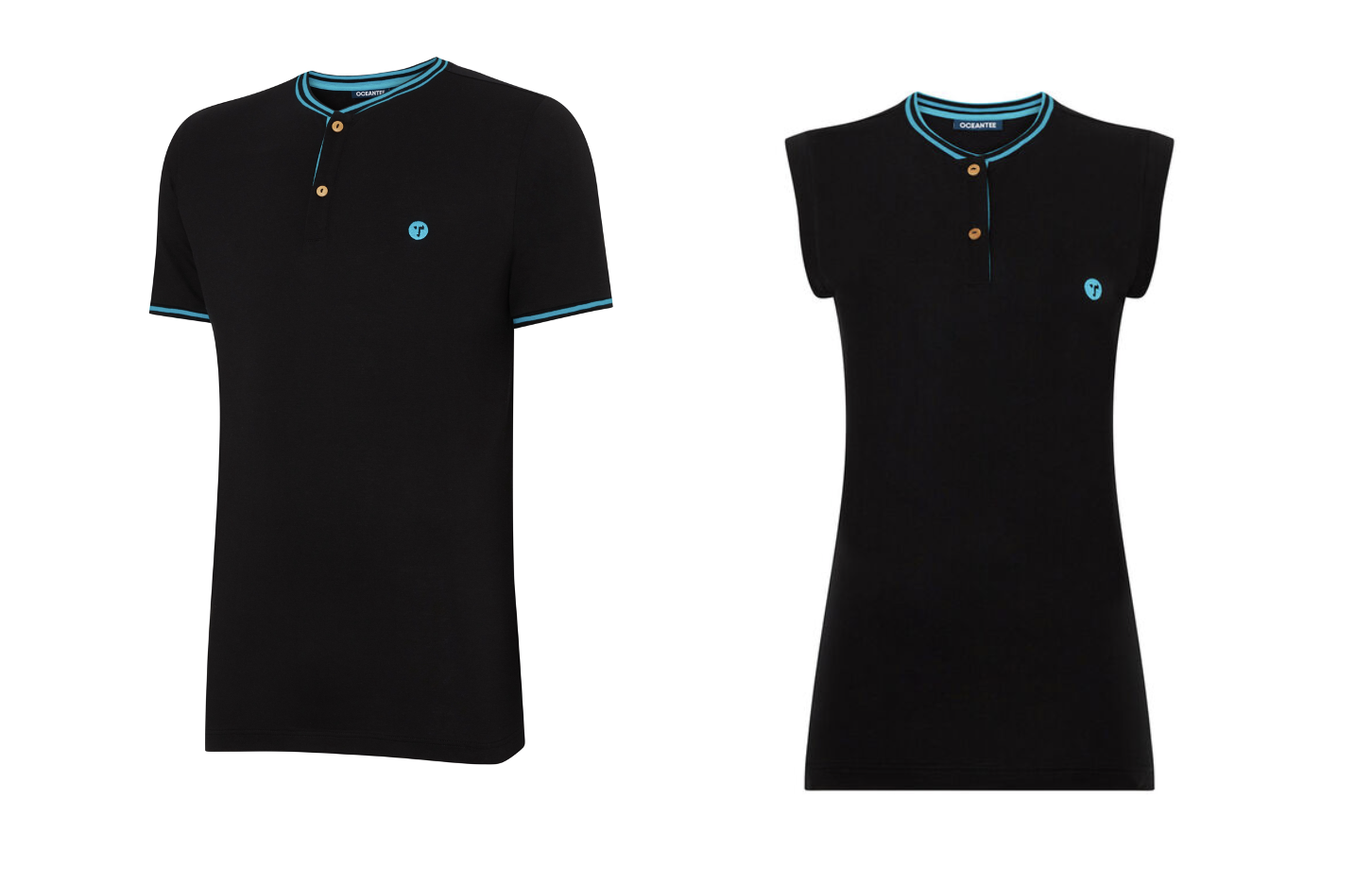OCEANTEE has launched a new range of polo shirts for men and women made from a new fabric that is a triumph in sustainable performance.
The ultra-lightweight OCEANIC polo is made from a pioneering blend of Tencel Lyocell and Tencel REFIBRA fibres that uniquely combines wood pulp and repurposed cotton to create the perfect summer golf garment.
TENCEL Lyocell fibres have a reputation for their environmentally responsible, closed-loop production process. This transforms wood pulp into cellulosic fibers with high resource efficiency and low ecological impact. This solvent-spinning process recycles process water and reuses the solvent at a recovery rate of more than 99%.
The pioneering REFIBRA technology involves upcycling cotton scraps from garment production. These cotton scraps are transformed into cotton pulp. A substantial proportion – up to one third – of this is added to wood pulp, and the combined raw material is transformed to produce new virgin Tencel Lyocell fibres, contributing to the circular economy in textiles.
In addition, the Oceanic polo is manufactured in Europe at the only factory in the world to have so far met the textiles procurement standard set by GreenPeace.
The Oceanic polo is naturally breathable and temperature-regulating, with properties that keep you cool, dry and odour free. The collarless design is enhanced with contrast tipping, just like its namesake, the critically endangered Oceanic White Tip shark, and is also available as a sleeveless polo for women. The three colourways – Aqua, Light Grey and Black – are available from American Golf online and in store, retailing at £49.99.
Speaking about the new polos, Ed Sandison, founder of OCEANTEE, said: “As well as hitting the mark when it comes to sustainability, the Oceanic polos are incredible performance garments. Unlike polyester, the microscopic fibrils are structured to regulate the absorption and release of moisture, keeping you dry and creating a refreshingly cooling sensation on your skin. Because the polo absorbs moisture efficiently, bacterial growth on the surface of the fabrics, which causes sweaty odours, just doesn’t happen.”
OCEANTEE also donates 25% of its corporate profits to marine conservation charities dedicated to combatting plastic pollution.

